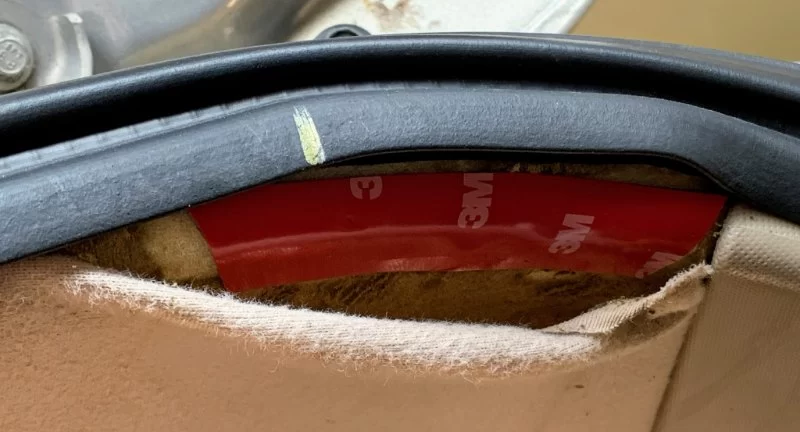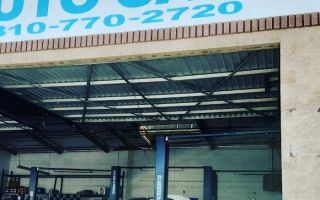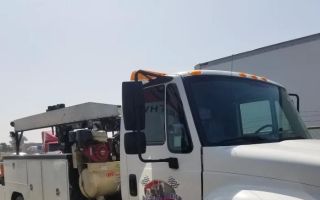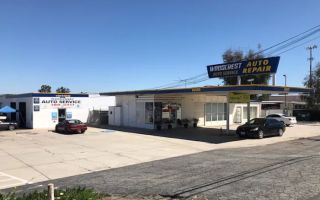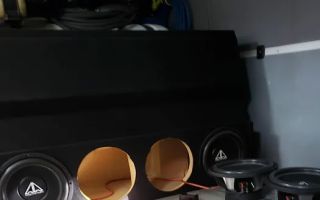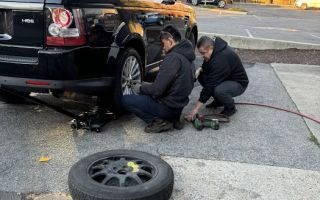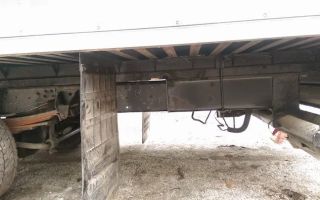- what-is-a-car-headliner-and-why-it-matters - What Is a Car Headliner and Why It Matters
- common-issues-with-headliners - Common Problems with Car Headliners Explained
- underlying-causes-of-headliner-failure - What Causes Headliner Problems in the First Place?
- real-world-examples-of-headliner-damage - Real-World Cases: How Headliner Issues Affect Drivers
- how-to-prevent-and-repair-headliner-issues - Tips to Prevent or Repair Headliner Damage
- why-turn-to-rescue-and-towing - Why Rescue & Towing Is Your Go-To for Headliner Help
1. What Is a Car Headliner and Why It Matters
The headliner in your vehicle isn’t just decorative—it plays a structural and comfort role. It’s the fabric-covered panel on the ceiling of your car, made of multiple layers including fabric, foam backing, and adhesive. When intact, it provides insulation, reduces noise, and contributes to your car’s aesthetic. But when it starts to sag, peel, or smell, it quickly becomes more than just a cosmetic concern.
Understanding how your car’s headliner works—and what can go wrong—is essential for keeping your vehicle in good condition, especially as it ages or experiences extreme climate conditions.
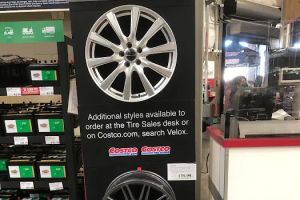
Costco Tire Center
43621 Pacific Commons Blvd, Fremont, CA 94538, USA
2. Common Problems with Car Headliners Explained
2.1 Sagging or Detachment
This is by far the most common issue. The foam backing beneath the fabric degrades over time, especially in high heat, causing the adhesive to fail. This results in fabric sagging or fully detaching from the ceiling.

Auto Service Center
6353 Ventura Blvd, Ventura, CA 93003, USA
2.2 Water Stains or Mold Growth
If your car has a sunroof or a leaking seal, moisture can accumulate behind the headliner. This often leads to dark water stains or worse—mold. Not only is this unsightly, but it can pose a health hazard to passengers.
2.3 Headliner Board Damage
Sometimes, it’s not just the fabric that’s damaged. If the headliner board—usually made of compressed fiber or plastic—cracks or warps, replacement becomes more complex and costly.
2.4 Unpleasant Odors
Headliners can absorb smoke, pet smells, or mildew. Once these odors penetrate the material, it’s difficult to eliminate them without professional cleaning or full replacement.
3. What Causes Headliner Problems in the First Place?
3.1 Heat and UV Exposure
Arizona heat or a closed car in a summer parking lot? That’s a recipe for adhesive failure. Constant exposure to sunlight and heat is one of the top causes of sagging headliners.
3.2 Moisture Intrusion
A minor leak can go unnoticed until you see discoloration or fabric loosening. Vehicles with older seals, roof racks, or sunroofs are especially vulnerable.
3.3 Age and Wear
Over time, even in ideal conditions, adhesives lose their strength. Vehicles over 10 years old are especially likely to develop headliner issues.
3.4 Accidental Impact
Stuffing large objects into your vehicle, like a bike or tall furniture, can scrape or dent the headliner board. This kind of damage is usually localized but still frustrating.
4. Real-World Cases: How Headliner Issues Affect Drivers
4.1 The Ride-Share Driver's Dilemma
Jake M., a Phoenix-based Uber driver, found his rating dropping after passengers complained about the sagging headliner brushing their heads. "I didn’t even notice until someone pointed it out. It cost me tips and eventually affected my status." A quick fix wasn’t enough—he needed a professional touch.
4.2 Mold Surprise in a Family SUV
The Wilsons returned from vacation to find a musky odor in their Ford Explorer. Turned out a small leak from the roof rail had soaked part of the headliner. Mold had started to grow behind it. Their mechanic said, “You caught it just in time—another week and it could’ve spread to the interior panels.”
4.3 Classic Car Enthusiast's Challenge
Restoring a vintage Camaro, Sandra R. was frustrated when her pristine new upholstery started sagging just six months after installation. Turns out, she’d used the wrong type of adhesive. Her experience has since made her an expert in headliner restoration—and a go-to voice in local classic car forums.
5. Tips to Prevent or Repair Headliner Damage
5.1 Regular Visual Inspections
Check your headliner every few months, especially around edges, dome lights, and sunroof seals. Catching early signs can save you a lot of money in the long run.
5.2 Park Smart
Use sunshades, tinting, or covered parking whenever possible. This minimizes heat exposure and UV damage, two silent enemies of adhesives.
5.3 DIY Temporary Fixes vs. Professional Repairs
You can pin or glue sagging spots for a short-term solution, but they rarely last. For clean, lasting results—especially with older or luxury vehicles—professional reupholstering is often the smartest route.
5.4 Use the Right Materials
If you're tackling it yourself, use high-temp spray adhesive designed specifically for automotive applications. Using craft glue or household spray adhesives will almost always lead to failure.
6. Why Rescue & Towing Is Your Go-To for Headliner Help
6.1 More Than Just Towing
At Rescue & Towing, we know car trouble isn't always about engines or tires. Interior damage, like headliner sag, can be just as disruptive—especially if you're using your vehicle daily for work, family, or recreation.
6.2 Trusted Partners and Fast Referrals
We work with vetted upholstery repair services across the region and can quickly connect you with a pro who specializes in headliner fixes. Whether it’s minor sagging or full replacements, we’ll get you in the right hands—fast.
6.3 Emergency Response for Interior Issues
Yes, we offer 24/7 roadside assistance—but we also help when interior issues compromise driving comfort or safety. Need advice on what to do until you reach the shop? We’re here to guide you.
6.4 Make It Part of Your Vehicle Maintenance Plan
Your car’s interior deserves just as much attention as its engine. Let Rescue & Towing help you stay ahead of issues like sagging headliners before they turn into bigger (and smellier) problems.

